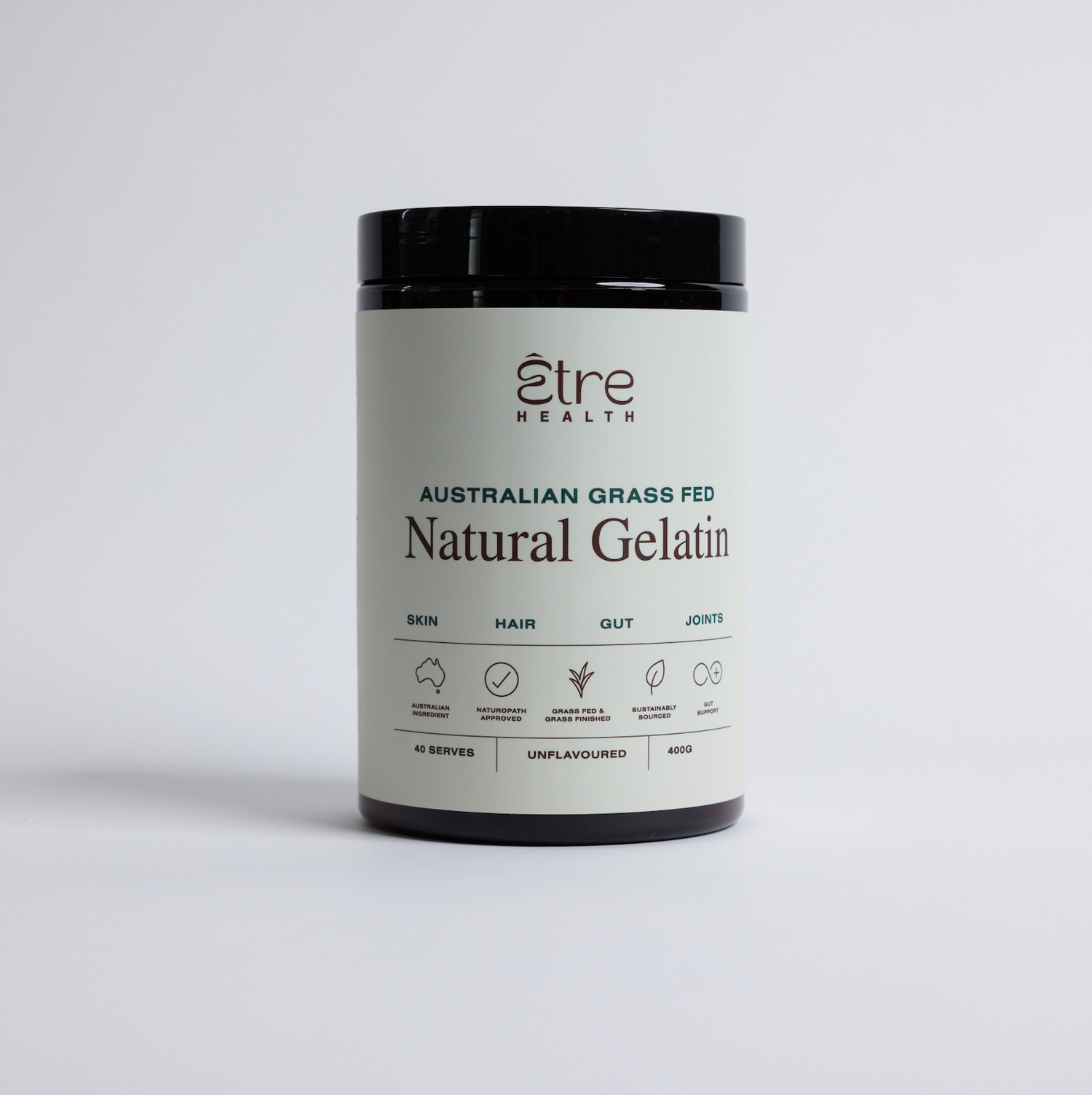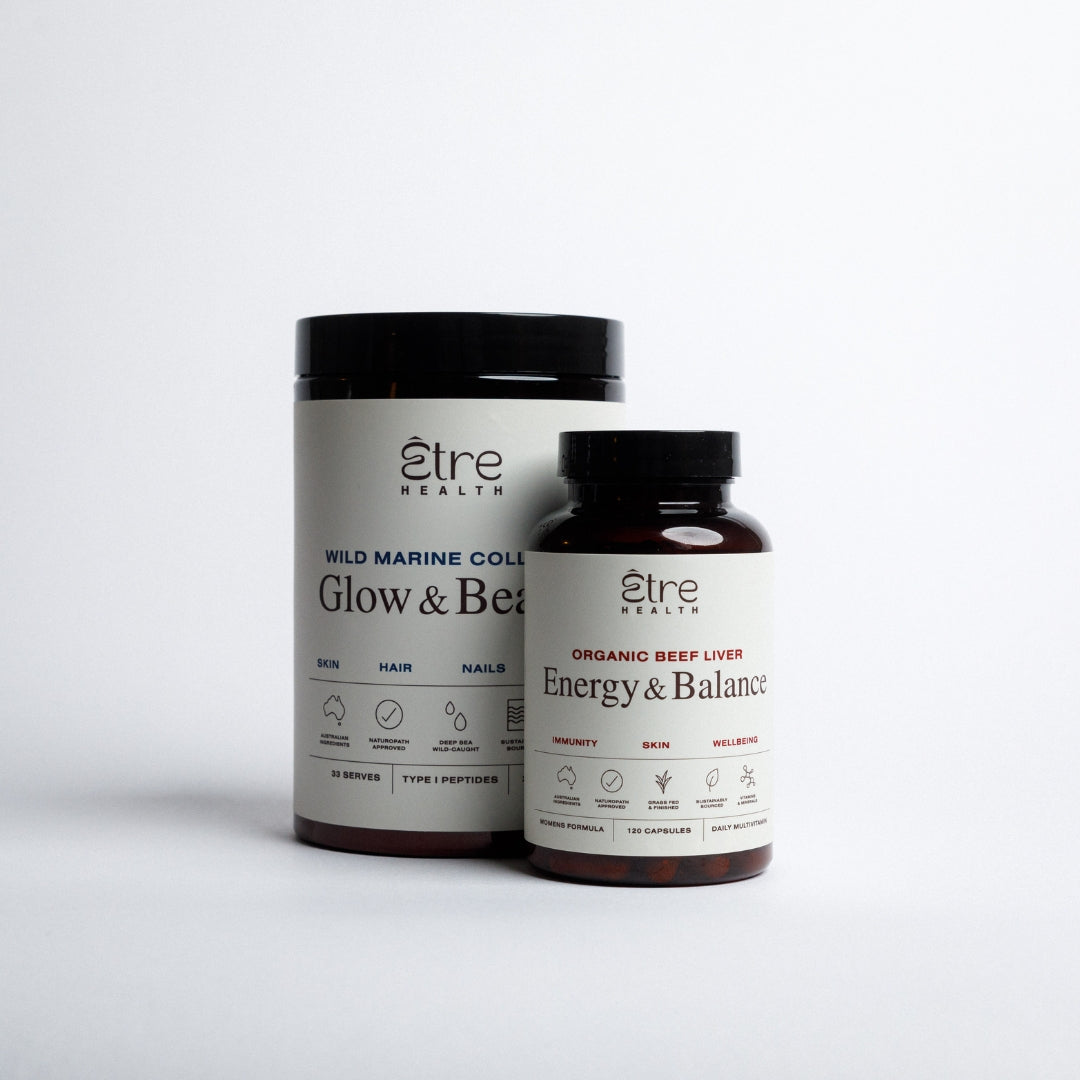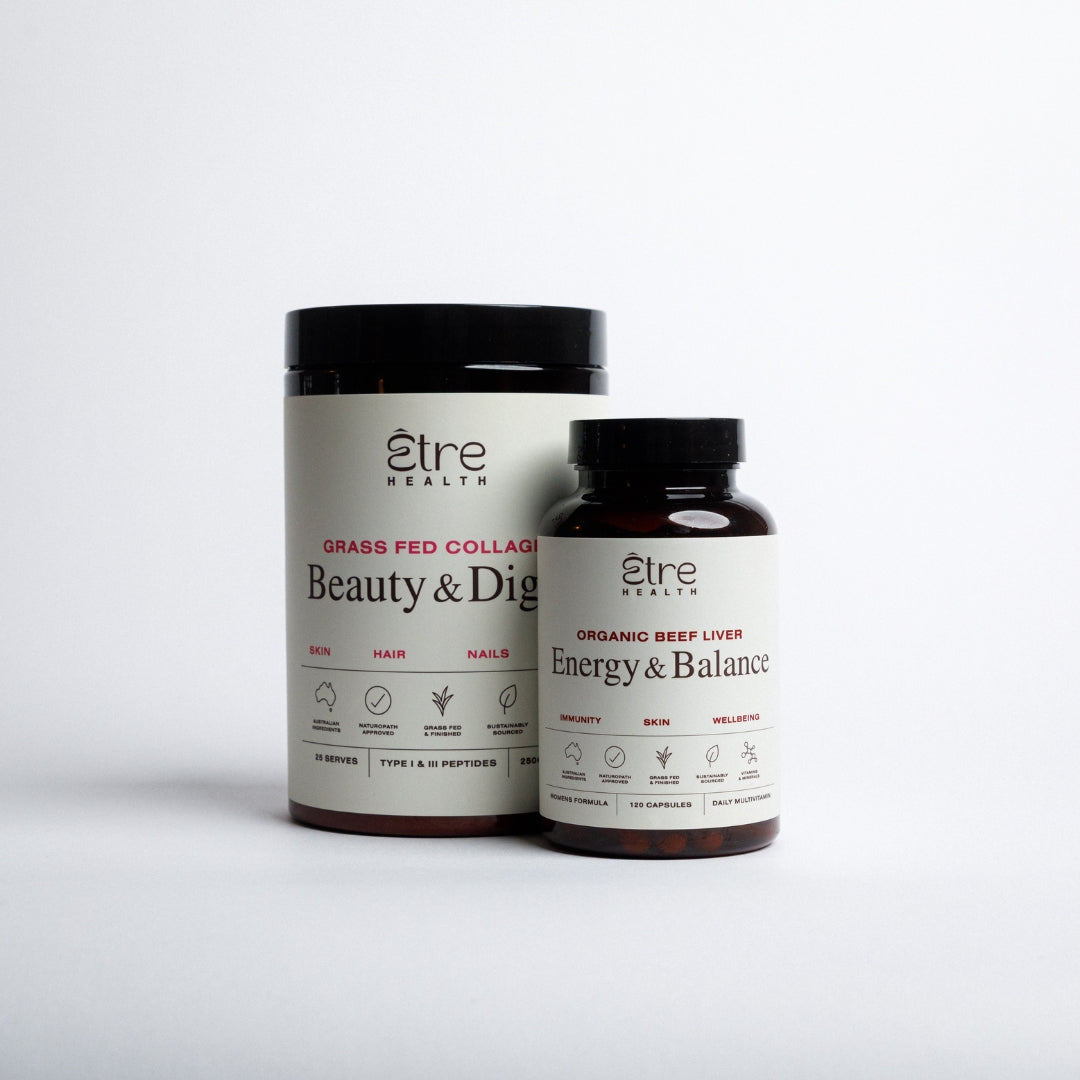Found in naturally high amounts within Être Health Organic Beef Liver is Vitamin B12 is an important B vitamin for physical and mental health. It is crucial for nerve tissue health, brain function, and the production of red blood cells.
Our Organic Beef Liver contains over 200% of your RDI * Recommended Daily Intake.
Vitamin B12, or cobalamin, is naturally found in animal foods. It can also be added to foods or supplements. Vitamin B12 is needed to form red blood cells and DNA. It is also a key player in the function and development of brain and nerve cells.
Vitamin B12 binds to the protein in the foods we eat. In the stomach, hydrochloric acid and enzymes unbind vitamin B12 into its free form. From there, vitamin B12 combines with a protein called intrinsic factor so that it can be absorbed further down in the small intestine.
What is vitamin B12 and what does it do?
Vitamin B-12 is a nutrient found in animal products such as Beef liver which supports your body's blood and keeps your nerve cells healthy, whilst helping to produce DNA (the genetic material in all of our cells).
Vitamin B-12 also helps prevent megaloblastic anaemia, a blood condition which makes people tired and weak.
The body absorbs vitamin B12 from food in a two-step process. The first step, hydrochloric acid in the stomach separates vitamin B12 from the protein that it’s attached to. The second step, the freed vitamin B12 then combines with a protein made by the stomach, called intrinsic factor, and the body absorbs them together.
Higher levels of B12 are linked with more energy and endurance, while low levels are associated with fatigue.
Supplementing Vitamin B12
In dietary supplements vitamin B-12 isn’t attached to protein and doesn’t require the first step. However, B12 in supplements needs to combine with intrinsic factor to be absorbed.
Those with pernicious anaemia, an autoimmune disease, can’t make intrinsic factor. As a result, they have trouble absorbing vitamin B12 from foods and dietary supplements.
The key roles of Vitamin B12
- Brain and nervous system function
- Supporting cognitive functioning (our ability to think)
- Assist the formation of red blood cells
- Helps to create and regulate our DNA
- May prevent congenital abnormalities
- Helping protect the eyes from macular degeneration
- Necessary for energy production
B-12 Deficiency
If you have a vitamin B12 deficiency, you may feel tired or weak. These are symptoms of megaloblastic anaemia, which is a hallmark of vitamin B12 deficiency. You might also have pale skin, heart palpitations, loss of appetite, weight loss, and infertility. Your hands and feet might become numb or tingly, a sign of nerve problems.
B12 deficiency manifests as macrocytic anemia, and thus, the presenting symptoms often include signs of anemia, such as fatigue and pallor. Due to the increased hemolysis caused by impaired red blood cell formation, jaundice may also be a presenting symptom.
Other symptoms of vitamin B12 deficiency include problems with balance, depression, confusion, dementia, poor memory, and soreness of the mouth or tongue.
Vitamin B12 is essential for healthy blood. When the body does not have enough B12, it leads to decreased normal red blood cell production (anaemia), which impairs oxygen delivery.












